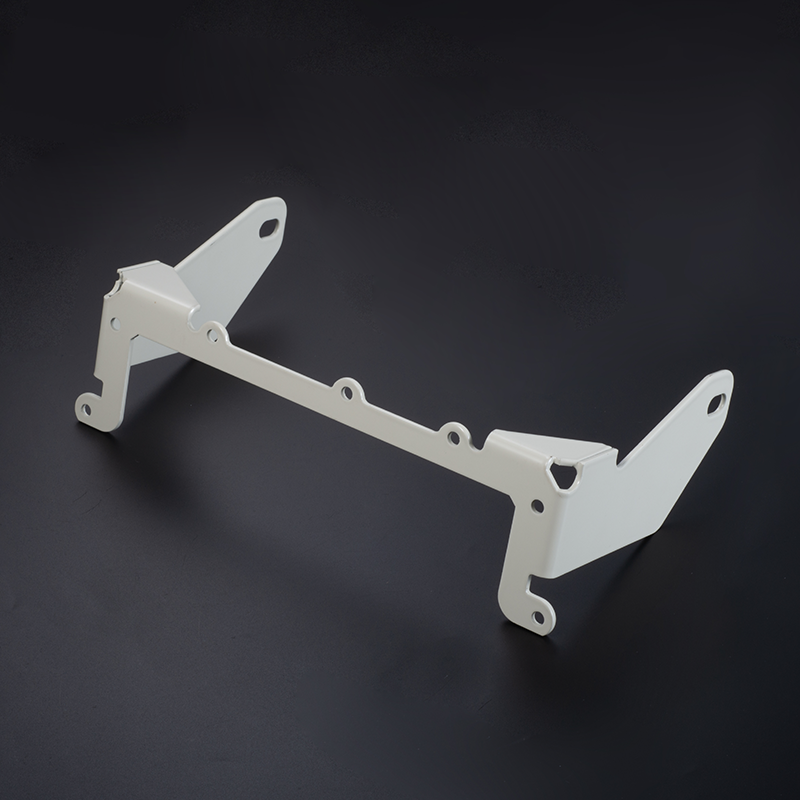Email format error
Email cannot be empty
Email already exists
6-20 characters(letters plus numbers only)
The password is inconsistent
Email format error
Email cannot be empty
Email does not exist
6-20 characters(letters plus numbers only)
The password is inconsistent


China Aluminium Sheet Metal Fabrication: Leading the Way in Precision Manufacturing
China has long been recognized as a global manufacturing powerhouse, and in recent years, its capabilities in aluminium sheet metal fabrication have garnered significant attention. The country's expertise in this field is driven by advanced technology, skilled labor, and a strong commitment to quality and innovation. This blog delves into the intricacies of China aluminium sheet metal fabrication, highlighting its importance, processes, benefits, and future trends.
Introduction to Aluminium Sheet Metal Fabrication
Aluminium sheet metal fabrication involves the transformation of aluminium sheets into various components and products through cutting, bending, welding, and assembling processes. This versatile material is prized for its lightweight, corrosion resistance, and excellent mechanical properties, making it ideal for a wide range of applications across industries such as automotive, aerospace, construction, and electronics.
Why Choose Aluminium?
Aluminium is the material of choice for many manufacturers due to its unique properties. It is significantly lighter than steel, which reduces the overall weight of products without compromising strength. Additionally, aluminium's natural resistance to corrosion ensures longevity and durability, even in harsh environments. These attributes, combined with its recyclability, make aluminium an environmentally friendly option.
The Role of China in Aluminium Sheet Metal Fabrication
China's dominance in the field of aluminium sheet metal fabrication is not coincidental. Several factors contribute to its leading position, including:
Advanced Manufacturing Technology
China has heavily invested in state-of-the-art manufacturing technology. From high-precision CNC machines to automated robotic arms, the country boasts some of the most advanced fabrication facilities in the world. These technologies enable Chinese manufacturers to produce high-quality aluminium components with exceptional accuracy and consistency.
Skilled Workforce
The availability of a skilled workforce is another critical factor. China has a vast pool of engineers, technicians, and skilled laborers who are well-versed in the nuances of aluminium sheet metal fabrication. Continuous training and development programs ensure that the workforce remains adept at using the latest technologies and methodologies.
Cost-Effective Production
China's cost-effective production methods make it an attractive destination for aluminium sheet metal fabrication. The lower cost of labor, coupled with economies of scale, allows Chinese manufacturers to offer competitive pricing without compromising on quality. This cost advantage is particularly beneficial for international companies looking to reduce their production expenses.
Key Processes in China Aluminium Sheet Metal Fabrication
The fabrication of aluminium sheet metal involves several key processes, each critical to achieving the desired final product. These processes include:
Cutting
Cutting is the initial step in aluminium sheet metal fabrication. It involves slicing large sheets of aluminium into smaller, manageable pieces using various cutting techniques such as laser cutting, waterjet cutting, and shearing. Laser cutting, in particular, is favored for its precision and ability to create intricate shapes with minimal material wastage.
Bending
Once the aluminium sheets are cut to size, they undergo bending to achieve the required shapes and angles. CNC press brakes are commonly used for this purpose, allowing for precise and repeatable bends. Bending is essential for creating components like brackets, enclosures, and panels.
Welding
Welding is a crucial process in aluminium sheet metal fabrication, used to join different parts together. Techniques such as TIG (Tungsten Inert Gas) and MIG (Metal Inert Gas) welding are commonly employed due to their effectiveness in producing strong and clean welds. Welding ensures the structural integrity of the final product.
Finishing
Finishing processes enhance the appearance and functionality of aluminium components. This can include anodizing, painting, powder coating, and polishing. Anodizing, for example, increases corrosion resistance and allows for the addition of various colors, while powder coating provides a durable and attractive finish.
Benefits of China Aluminium Sheet Metal Fabrication
Choosing China for aluminium sheet metal fabrication offers numerous benefits to businesses worldwide:
High-Quality Standards
Chinese manufacturers adhere to strict quality control measures to ensure that the final products meet international standards. Certifications such as ISO 9001 and ISO 14001 are common among leading fabrication companies, reflecting their commitment to quality and environmental management.
Customization and Flexibility
China's aluminium sheet metal fabrication industry is known for its flexibility and ability to accommodate custom orders. Manufacturers can produce bespoke components tailored to specific requirements, whether for a small batch or large-scale production. This customization capability is particularly valuable for industries with unique and precise needs.
Rapid Turnaround Times
Thanks to advanced technology and efficient production processes, Chinese manufacturers can offer rapid turnaround times. This speed is crucial for businesses looking to bring products to market quickly and stay ahead of the competition. Additionally, China's extensive logistics network ensures timely delivery of fabricated components to global destinations.
Applications of Aluminium Sheet Metal Fabrication
The applications of aluminium sheet metal fabrication are vast and varied, spanning multiple industries:
Automotive Industry
In the automotive sector, aluminium sheet metal fabrication is used to create lightweight yet robust components such as body panels, chassis parts, and heat shields. The reduced weight of aluminium contributes to improved fuel efficiency and reduced emissions, aligning with the industry's push for sustainability.
Aerospace Industry
The aerospace industry relies heavily on aluminium for its excellent strength-to-weight ratio. Fabricated aluminium components are used in aircraft structures, interior fittings, and engine parts. The material's resistance to corrosion and fatigue makes it ideal for the demanding conditions of aerospace applications.
Construction Industry
In construction, aluminium sheet metal fabrication is employed in the creation of architectural elements such as curtain walls, roofing, and cladding. The material's aesthetic appeal, combined with its durability and low maintenance requirements, makes it a popular choice for modern buildings and infrastructure projects.
Electronics Industry
Aluminium's excellent thermal conductivity and electromagnetic shielding properties make it indispensable in the electronics industry. Fabricated aluminium enclosures, heat sinks, and chassis are commonly used in electronic devices and equipment to dissipate heat and protect sensitive components.
Future Trends in China Aluminium Sheet Metal Fabrication
The future of China aluminium sheet metal fabrication looks promising, with several trends poised to shape the industry:
Increased Automation
Automation is set to play a more significant role in aluminium sheet metal fabrication. The adoption of advanced robotics and artificial intelligence (AI) will enhance precision, reduce labor costs, and improve overall efficiency. Automated systems can handle repetitive tasks with consistent quality, allowing human workers to focus on more complex and creative aspects of fabrication.
Sustainable Practices
Sustainability is becoming a critical consideration in manufacturing. Chinese aluminium fabricators are increasingly adopting eco-friendly practices such as using recycled aluminium, minimizing waste, and implementing energy-efficient processes. These efforts align with global sustainability goals and appeal to environmentally conscious customers.
Technological Advancements
Technological advancements will continue to drive innovation in aluminium sheet metal fabrication. Developments in additive manufacturing (3D printing), for example, offer new possibilities for creating complex aluminium components with reduced material wastage. Additionally, advancements in material science may lead to the development of new aluminium alloys with enhanced properties.
Conclusion
China aluminium sheet metal fabrication is at the forefront of global manufacturing, offering high-quality, cost-effective, and customized solutions to a diverse range of industries. With its advanced technology, skilled workforce, and commitment to innovation, China continues to lead the way in this vital sector. As the industry evolves, embracing automation, sustainability, and new technologies, the future of aluminium sheet metal fabrication in China looks brighter than ever.
Whether you are in the automotive, aerospace, construction, or electronics industry, partnering with a Chinese aluminium sheet metal fabricator can provide you with the competitive edge needed to succeed in today's dynamic market.

